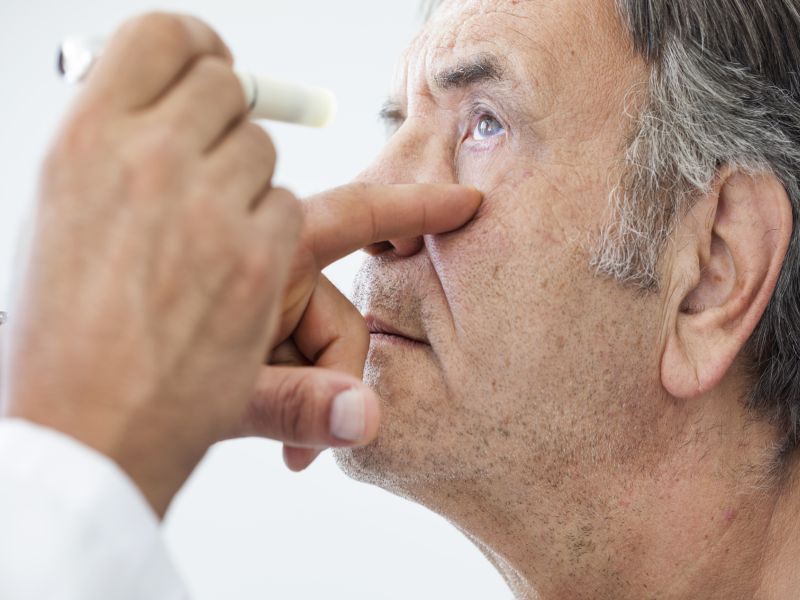Get Healthy!

- Robert Preidt
- Posted August 21, 2019
Smoggy Air Might Contribute to Macular Degeneration
Tailpipe pollution might pose a real health threat to aging eyes, according to a new study out of Taiwan.
Researchers there found that exposure to high levels of two car exhaust pollutants nearly doubled the odds of age-related macular degeneration (AMD).
It's one of the most common causes of vision loss in older people.
The study is the first of its kind to "demonstrate a significant association between AMD and high levels of ambient" nitrogen dioxide and carbon monoxide in the air people breathe, said a study team led by Suh-Hang Hank Juo.
He's a professor at the Graduate Institute of Biomedical Sciences at China Medical University in Taichung.
One U.S. expert who reviewed the findings said they highlight a growing threat to people's vision.
"With the ever-increasing industrialization of cities around the world, and increasing levels of pollution, a close watch on the effects this will have on eye health will be critical in our aging population," said Dr. Mark Fromer, an ophthalmologist at Lenox Hill Hospital in New York City.
As Fromer explained, AMD involves a deterioration of the macula, "the central area of the retina responsible for an individual's sharpest vision."
According to the American Academy of Ophthalmology, the condition typically affects people over 50, causing patients to lose central vision over time. There is currently no cure for the disease.
There are numerous risk factors for AMD, including overweight/obesity, diets high in saturated fats, smoking and high blood pressure.
The Taiwanese team wanted to see if polluted air might be another risk factor. To find out, they tracked levels of two pollutants -- nitrogen dioxide and carbon monoxide -- in the air breathed by 40,000 city-dwelling Taiwanese people aged 50 and older. During the study period, more than 1,400 of the participants went on to develop AMD.
After accounting for other potential risk factors -- such as age, sex, household income and existing illnesses -- people with the highest level of exposure to nitrogen dioxide were 91% more likely to develop AMD than those exposed to the lowest level, the findings showed.
In addition, people exposed to the highest level of carbon monoxide were 84% more likely to develop AMD than those exposed to the lowest level.
The highest rate (5.8%) of newly diagnosed AMD was among people exposed to the highest levels of carbon monoxide, according to the study published online Aug. 20 in the Journal of Investigative Medicine.
Still, the researchers stressed that because this is an observational study, it can't establish cause and effect. The data also didn't include information on other AMD risk factors, the study authors noted.
However, the investigators said prior research has tied air pollution to several illnesses, including respiratory and heart diseases.
And Fromer said that list also includes eye conditions.
"In the past, high levels of pollution caused by traffic have been identified as causing ocular disease on the surface of the cornea, leading to dry eye," he noted. "Conjunctivitis has also been identified as an ocular surface disease, which can be the result of traffic pollutants."
Fromer said it's very plausible that smog might raise AMD risk, because the illness "has been identified as a disease which has both an environmental and genetic basis."
More information
The U.S. National Eye Institute has more on age-related macular degeneration.
SOURCES: Mark Fromer, M.D., ophthalmologist, Lenox Hill Hospital, New York City; Journal of Investigative Medicine, news release, Aug. 20, 2019



